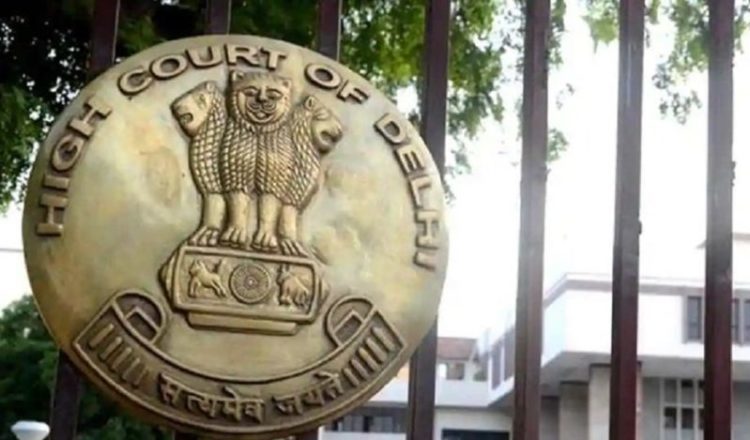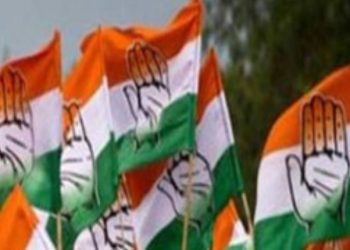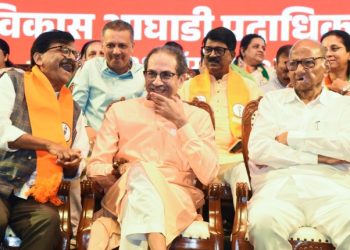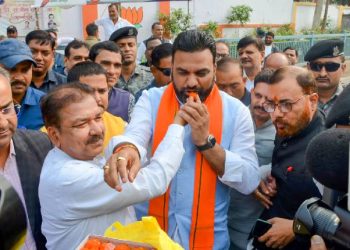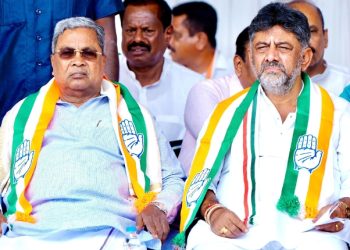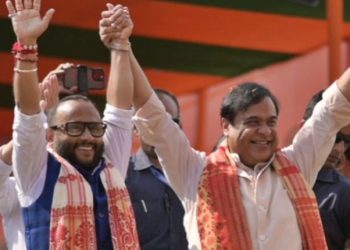New Delhi: The Delhi High Court on Monday refused to hear a Public Interest Litigation (PIL) moved by BJP leader and lawyer Ashwini Kumar Upadhyay seeking directions to the Centre and states to ascertain the feasibility of confiscating cent per cent black money, benami ‘property, disproportionate assets and awarding life imprisonment in related offences.
Refusing the plea, a bench of Chief Justice Satish Chandra Sharma and Justice Subramonium Prasad noted that a similar plea was earlier filed by the same petitioner before the Supreme Court which had permitted him to make a representation to the Law Commission on the issue.
The bench also observed that there is no order from the apex court for the petitioner to approach the high court in the matter.
During the course of the hearing, Upadhyay prayed for tagging his present plea with one of his earlier petitions. However, the bench denied his request and said: “The writ petition is dismissed as withdrawn.”
The PIL sought from the court o constitute an expert committee or direct the Law Commission of India to examine the most stringent anti-corruption laws of the developed countries, particularly the laws relating to bribery, black money, money laundering, profiteering, hoarding, adulteration, black marketing, dishonest misappropriation of property by cheating, fraud, forgery, and prepare a comprehensive report within three months.
“Total budget of Centre, States & Local Bodies is Rs 70 lakh crore but due to massive corruption in every public department, Rs 14 lakh crore becomes black money. The Government can save this huge money by recalling currency notes above Rs 100, restricting cash transaction above Rs 5000, linking assets above Rs 50,000 with Aadhaar, confiscating 100 per cent disproportionate assets, black money, benami property and awarding life imprisonment to looters,” it read.
It further said due to weak anti-corruption laws, not even a single district in the country is free from land mafias, drug-liquor mafias, mining mafias, hospital mafias, transfer posting mafias, betting mafias, tender mafias, hawala mafias, school coaching mafias, infiltration mafias, conversion mafias, superstition, black magic mafias and white-collar political mafias, who divide our society on the basis of religion, race, caste, sex and place of birth.
Corruption hurts EWS-BPL families excessively by diverting the funds intended for their development, undermines the government’s ability to provide basic services, seeds inequality and injustice and discourages foreign aid and investment, the plea stated.
Corruption is key factor in economic underperformance and main obstacle in poverty alleviation. Right to life-liberty guaranteed under Article 21 cannot be secured and the golden goals of Preamble cannot be achieved without curbing corruption. So, Centre and State must implement the stringent anti-corruption laws in order to give strong message that it is determined to weed-out corruption, black money generation, benami transaction and money laundering.
The Centre must take steps to reaffirm the rule of law, improve transparency and to warn looters that betrayal of public trust will no longer be tolerated, it contended.
There is no country in top 50 of Human Development Index, which has significant amount of corruption. There is correlation between welfare State with attention to education public health and absence of corruption. So, Centre & State must take steps to confiscate 100 per cent black money benami properties and disproportionate assets and award life imprisonment to looters, it said further.
(IANS)



